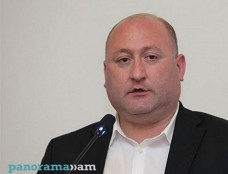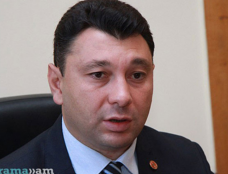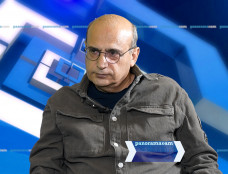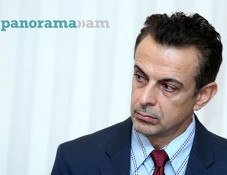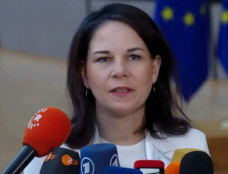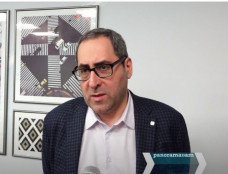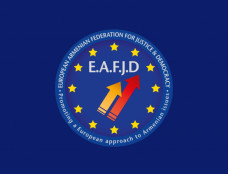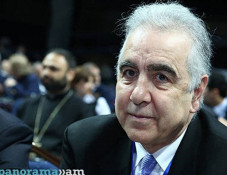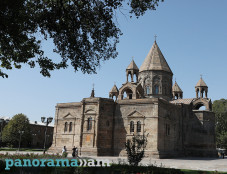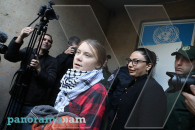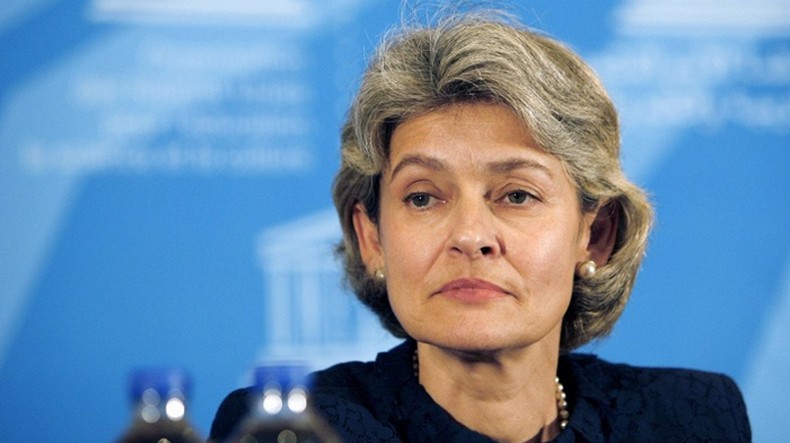
Does Irina Bokova, implicated in corruption scandals, push forward candidate from repressive Azerbaijan for UNESCO Director General?
Irina Bokova, Director General of the United Nations Educational, Scientific and Cultural Organisation (UNESCO), will run for the post of UN Secretary General, while promoting an Azerbaijani representative as UNESCO’s Director General, according to Organised Crime and Corruption Reporting Project (OCCRP).
According to the report, the European Centre of Press and Media Freedom stated in an appeal that Azerbaijan failed in its commitment to UNESCO’s ideals and aims, which includes “protecting freedom of expression.” The Azerbaijani government has been widely criticised for imprisoning journalists and shutting down independent media organisations.
In an August 2015 interview to the Azerbaijani information agency Trend, Bokova expressed her “gratitude to the authorities of the Republic of Azerbaijan” and noted a close cooperation with the Heydar Aliyev Foundation, its financial support and joint projects.
OCCRP writes about Bokova’s possessions, the suspicions over which drove journalists to carry out an investigation. Citing the investigation of its Bolgarian partner, the website Bivol, OCCRP writes that Irina Bokova owns property in Manhattan worth more than US$ 3 million. After analysing the family’s known income, Bivol questioned whether they could afford the property. New York’s public property register showed Bokova paid US$ 2.4 million in cash for two apartments in Manhattan and that her son by a first marriage repaid his US$ 870,000 mortgage in four years.
According to records examined by Bivol, Bokova bought her first apartment in Manhattan on Nov. 6, 2012 for US$ 1,189,438, and apparently paid in a lump sum. There were no records of a mortgage or instalment payments. Her husband, Kalin Mitrev, is listed as co-owner and Bokova’s son, Pavel Kolarov, was a proxy in the transaction. Bokova’s family bought a second apartment on April 3, 2014 for US$ 1.225 million. On Dec. 5, 2008, Kolarov took out a mortgage for US$ 870,000 to purchase an apartment near 5th Avenue. At the time, Bokova had just taken the UNESCO job on Nov. 15, 2009 according to UNESCO's website. The mortgage, taken out with JP Morgan, was paid in full on Oct. 4, 2012.
According to Bivol, Bokova earned US$ 780,000 for her entire term in office as Director General for UNESCO. In 2012, she sold two properties in Bulgaria netting US$ 380,000. In addition, serving four years as Bulgarian Ambassador in Paris on a salary of € 3,000 a month (US$ 3,260.82) and with no housing expenses, she could have saved as much as US$ 130,000 during her term there, Bivol calculated.
The website concluded that the entirety of her known income adds up to about US$1.3 million, the price of one of the Manhattan apartments. Bivol further examined her husband’s income and assets. Mitrev was a long-time representative of the European Bank for Reconstruction and Development (EBRD) in Bulgaria. His net annual salary was comparable to that of his wife at UNESCO. In 2014, Mitrev sold a property in Bulgaria for US$ 160,000.
In this connection, the newspaper Golos Armenii writes about “what incomes and resources Madame Bokova could have had during the period she headed UNESCO.” Particularly, the newspaper cites “countless voyages to Baku and dithyrambs” Bokova addressed to the thoroughly disgraced Aliyev clan, as well as her “overtly biased and unprofessional approach to the cultural monuments in the region with an obvious Turkish preference,” which leave no doubt about the origin of the resources to buy the Manhattan property.
Another article by Bivol shows that Bokova’s name is also implicated in a scandal exposed by UNESCO’s Internal Oversight Service Audit & Investigation Unit. According to the article, the scandal is connected with the appointment of Ms. Ana Luiza Thompson-Flores, a Brazilian, as Director of UNESCO’s Bureau of Strategic Planning (BSP), which de facto controls the overall budget and manages the financial resources of the organisation, as well as provides advice to the Director-General on these matters. The appointment of Ms. Thompson-Flores involved drastic procedural violations: conflicts of interest, leaked confidential information, improper manipulation of UNESCO’s own rules and procedures, and submission of a fake diploma by the candidate.
Bivol highlights that the people responsible for these violations hold the highest-ranking posts in UNESCO, while the audit document repeatedly refers to the actions of Mrs. Bokova herself. Public information about the case is scarce. What is known is that at the end of 2014, Ms. Thompson-Flores became Assistant Director-General for Strategic Planning, only to be removed from the post a few months later, in September 2015. These abrupt developments attracted public attention, but both Mrs. Bokova and Ms. Thompson-Flores declined to comment for the media, according to an overview article on UNESCO’s 70th anniversary, published in the The Art Newspaper in November 2015. The prestigious monthly mentions Mrs. Bokova’s poor management skills as Director-General and quotes an unnamed diplomat saying, “Management is Bokova’s Achilles heel. She is a real product of the communist nomenklatura in Bulgaria.”
A confidential report the website obtained sheds abundant light on Ms. Thompson-Flores’ appointment and quick demotion. The report contains a detailed chronology of all the events related to “the two scandalous Bulgarian-Style Appointments,” as Bivol puts it. The story began in 2011, when Ms. Ana Luiza Thompson-Flores became head of the Bureau of Human Resources Management (HRM) through manipulation of the recruitment procedures and lowering of the qualification requirements – according to the report.
Bivol writes that the first irregularity in that case was the participation of Ms. Thompson-Flores, in her capacity as Deputy Director of HRM, in the preparation of the Vacancy Notice and the job announcement under the supervision of the Director-General Irina Bokova. Bokova also appointed her as a member of the pre-selection committee – a conflict of interests. Moreover, there was a concrete formal obstacle preventing the selection of the favourite, Thompson-Flores, for the post. For that post, there was a requirement for an advanced degree; however, Ms. Thompson-Flores had no such degree. That obstacle was circumvented by employing dubious means– the qualification requirements for the post were lowered. Bokova cancelled the first job competition at the end of 2010, at the final stage when six candidates were already shortlisted and interviewed. The post was then re-advertised. Ms. Thompson-Flores herself modified the desired profile of the candidate in the Vacancy Notice. Instead of an advanced degree, the candidate was allowed to apply on grounds of having “equivalent extensive professional experience.” On April 17, 2011, Irina Bokova decided to appoint Ms. Thompson-Flores to her “dream-post” Head of Human Resources of UNESCO (starting annual salary $120,000).
According to Bivol, the history repeated itself three years later. In 2014, Ms. Thompson-Flores, in her capacity as HRM Director, drafted the Vacancy Notice for the post Assistant Director-General for Strategic Planning. The announcement for this important post was made on August 4, “in the deadest possible period.” The requirement for a Ph.D. degree was included in the draft Vacancy Notice only as a desired qualification, and was not included as a mandatory requirement in the final Notice. Ms. Thompson-Flores had her draft Vacancy Notice approved by Irina Bokova and applied for the post. Bivol points to another conflict of interest, which Ms. Thompson-Flores did not report to the UNESCO’s Ethics Office. Irina Bokova personally interviewed the candidates (including Thompson-Flores) and decided to appoint her to the post.
This time, however, the Brazilian was exposed as a sham and subsequently fired. She not only did not have a Ph.D. degree, but she had also embellished her biography by claiming a non-existent “MBA – certificate.” The appointment letter from 2011, signed by Irina Bokova, states that Ms. Thompson-Flores “holds a Bachelor of Science in Business Administration from the American University in Washington D. C.” and “an MBA Certificate from John Cabot University in Rome.” There is an emphasis on her “over 20 years of experience in various fields of Human Resources within the UN system.” MBA, Master of Business Administration, is an accepted equivalent of the Master’s degree (MA). The check, however, showed that such certificate did not exist. The audit further found that, despite the lack of other irregularities in the hard copy files, Ms. Thompson-Flores submitted her motivation letter supporting her candidature for ADG/BSP by e-mail 16 days after the deadline to submit the job application. This means that her application file was incomplete, but the application was accepted after the deadline.
Newsfeed
Videos





